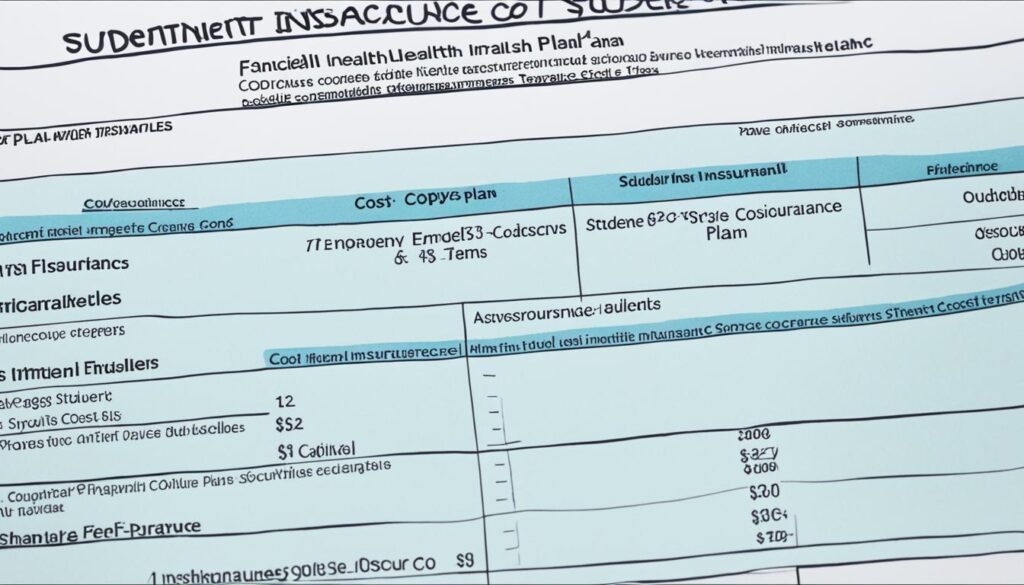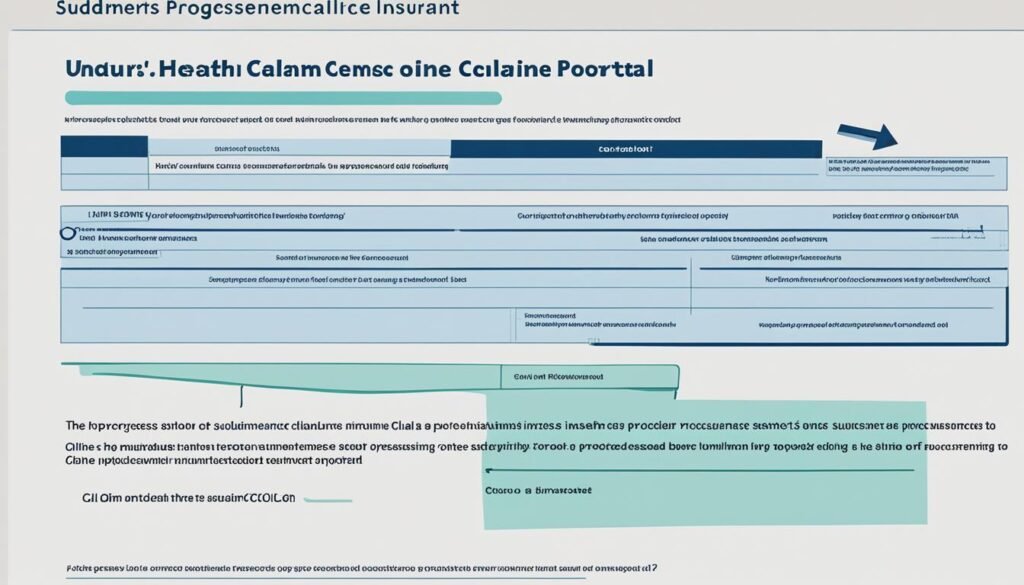The Continents States University works to equip future professionals with the skills, tools, and opportunities that enable faster integration into the workforce industry around the globe by delivering affordable, quality, and competency-based education to everyone across the continents. When it comes to student health insurance plans, the university ensures that its students have access to comprehensive coverage that meets their healthcare needs. These plans provide a wide range of benefits, including medical services, preventive care, mental health support, and more, ensuring that students can focus on their academic pursuits while knowing that their health is well-protected.
Key Takeaways
- Student health insurance plans offer affordable and comprehensive coverage for college and university students.
- These plans typically include medical services, preventive care, mental health support, and other essential benefits.
- Understanding the details of student health insurance plan coverage can help students make informed decisions about their healthcare needs.
- The Continents States University is committed to providing its students with the necessary healthcare coverage to support their academic and personal well-being.
- The university’s student health insurance plans are designed to ensure that students have access to the care they need to thrive during their academic journey.
Understanding Student Health Insurance Plans
A student health insurance plan is a specialized type of healthcare coverage designed to meet the unique needs of college and university students. These plans provide a range of medical services, including doctor visits, hospitalizations, and prescription drug coverage, ensuring that students have access to the care they require during their academic journey.
What is a Student Health Insurance Plan?
A student health insurance plan is a health insurance policy that caters specifically to the healthcare needs of students. These plans are often offered through colleges and universities, providing comprehensive coverage for a wide array of medical services. The benefits of a student health insurance plan include protecting students from the financial burden of unexpected medical expenses, ensuring access to necessary healthcare, and supporting their overall well-being throughout their academic pursuits.
Importance of Health Coverage for Students
The importance of health coverage for students cannot be overstated. As young adults, students are often navigating the healthcare system for the first time and may face unexpected medical expenses that can disrupt their academic progress. A student health insurance plan helps alleviate this burden by providing access to essential healthcare services, such as routine check-ups, preventive care, and treatment for illnesses or injuries. By maintaining comprehensive health coverage, students can focus on their studies and personal growth, knowing that their medical needs are being addressed.
Eligibility and Enrollment
Navigating the world of student health insurance can be a daunting task, but understanding the eligibility requirements and enrollment process is crucial for ensuring seamless coverage. Many universities and colleges require full-time students to maintain student health insurance eligibility, and they often offer comprehensive health plans that students can enroll in.
The eligibility criteria for student health insurance typically depends on factors such as enrollment status, course load, and any additional criteria set by the institution or insurance provider. Full-time students are generally mandated to have health coverage, and the university-sponsored plans provide a convenient option for meeting this requirement.
The enrollment process for student health insurance plans can vary, but it usually involves completing an application, providing proof of enrollment, and making the necessary premium payments. Students should familiarize themselves with the specific enrollment deadlines and procedures to ensure they secure coverage and avoid any gaps in their health protection.

By understanding the eligibility guidelines and navigating the enrollment process, students can take a proactive approach to their healthcare needs and ensure they have the coverage they require throughout their academic journey.
Core Benefits of Student Health Plans
Student health insurance plans are designed to provide comprehensive coverage for a variety of medical services and preventive care. These plans typically cover doctor visits, hospitalizations, diagnostic tests, and prescription drugs, ensuring students have access to the healthcare they need to support their academic success.
Medical Services Covered
Student health insurance plans often cover a wide range of medical services, including primary care visits, specialist consultations, diagnostic imaging, and laboratory tests. This coverage helps students receive the necessary care for injuries, illnesses, and chronic conditions, enabling them to focus on their studies without worrying about the financial burden of healthcare expenses.
Preventive Care and Wellness
In addition to medical services, student health insurance plans frequently include preventive care benefits, such as annual check-ups, routine screenings, and immunizations. These preventive care services help students maintain their overall health and well-being, allowing them to thrive in their academic pursuits. By taking advantage of these benefits, students can proactively manage their health and reduce the likelihood of developing more serious medical issues.
By understanding the core benefits of student health plans, including coverage for medical services and preventive care, students can make informed decisions about their healthcare needs and ensure they have the support they require to succeed academically.
Student health insurance plan coverage details
When it comes to student health insurance plans, the coverage details can vary widely depending on the university, insurance provider, and specific plan options. However, these plans typically provide essential medical services that are crucial for students’ well-being, including doctor visits, emergency care, hospitalization, and prescription drug coverage.
Students should carefully review the student health insurance plan details to understand the scope of their coverage and ensure they are selecting a plan that meets their healthcare needs. This includes understanding what is covered by student health insurance, such as preventive care, diagnostic tests, and mental health services, as well as any exclusions or limitations that may apply.
By familiarizing themselves with the student health insurance plan coverage, students can make an informed decision and feel confident in their ability to access the medical care they need throughout their academic journey. Reviewing these details can also help students budget for any out-of-pocket costs, such as copays or deductibles, and plan accordingly.
In-Network vs. Out-of-Network Care
When it comes to your student health insurance plan, understanding the difference between in-network and out-of-network care can save you a significant amount in out-of-pocket costs. In-network providers are healthcare professionals and facilities that have contracted with your insurance provider to offer services at pre-negotiated rates. By visiting an in-network provider, you’ll typically pay less for your medical care.
Navigating Provider Networks
To find in-network providers for your student health insurance plan, start by reviewing the plan’s provider network. You can usually access this information through your insurance company’s website or by contacting their customer service. Once you’ve identified in-network providers, you can research their qualifications, specialty areas, and locations to find the best fit for your healthcare needs. Visiting an in-network provider not only reduces your costs but also ensures that your plan’s benefits are applied correctly.
While you have the option to visit out-of-network providers, keep in mind that you’ll likely pay more out-of-pocket for these services. Your student health insurance plan may cover a smaller percentage of the costs or even require you to meet a separate out-of-network deductible before coverage kicks in. By understanding your plan’s in-network and out-of-network benefits, you can make informed decisions about where to receive care and maximize the value of your student health insurance coverage.
Cost-Sharing: Copays, Deductibles, and Coinsurance
When it comes to student health insurance plans, understanding the cost-sharing elements is crucial. These plans often involve a mix of copays, deductibles, and coinsurance, all of which can impact a student’s out-of-pocket expenses. Copays are the fixed, upfront costs that students pay for certain services, such as doctor visits or prescription drugs. Deductibles, on the other hand, are the amounts students must pay before their insurance plan begins to cover the costs.
After the deductible is met, students may still be responsible for a portion of the costs through coinsurance. Coinsurance is the percentage of the cost that students are required to pay, typically ranging from 10% to 30%. By familiarizing themselves with these cost-sharing mechanisms, students can better budget and plan for their healthcare expenses, ensuring they can access the care they need without facing unexpected financial burdens.

Navigating the complexities of student health insurance can be daunting, but by understanding the cost-sharing structures, students can make informed decisions and manage their healthcare expenses more effectively. Whether it’s budgeting for copays, meeting deductibles, or planning for coinsurance, being aware of these financial aspects can help students get the most value from their student health insurance plans.
Prescription Drug Coverage
Many student health insurance plans offer coverage for prescription drugs, which can help students manage the cost of necessary medications. The specifics of this coverage, such as copays, tiers, and restrictions, can vary between different plans. Students should carefully review their plan’s prescription drug benefits to understand the level of coverage and ensure they can access the medications they require.
Prescription drug coverage under a student health insurance plan typically includes a formulary, which is a list of approved medications that are covered. These medications are often categorized into different tiers, with each tier having its own copay or coinsurance amount. Lower-tier medications, such as generic drugs, generally have lower out-of-pocket costs for the student, while higher-tier medications, such as brand-name drugs, may have higher copays or require prior authorization.
To get prescriptions covered under a student health insurance plan, students should work with their healthcare providers to choose medications that are on the plan’s formulary. They may also need to obtain prior authorization from the insurance provider for certain medications. By understanding their plan’s prescription drug benefits and working closely with their healthcare team, students can ensure they have access to the medications they need while minimizing their out-of-pocket costs.
Mental Health and Counseling Services
Student health insurance plans are now recognizing the importance of mental health support for college students. Many plans offer coverage for counseling services, therapy, and other mental health treatment options. This coverage can be invaluable for students who may face unique stressors and challenges during their academic journey.
By understanding the mental health benefits provided by their student health insurance plan, students can access the support they need to maintain their overall well-being. student health plan counseling services can include individual and group therapy, crisis intervention, and referrals to specialized mental health providers.

The availability of mental health support for college students through their student health insurance mental health coverage can make a significant difference in a student’s ability to manage stress, cope with emotional difficulties, and maintain a healthy, balanced lifestyle. This support can be especially crucial for students who may be dealing with anxiety, depression, or other mental health concerns.
International Student Coverage
International students studying in the United States often have specific health insurance requirements set by their university or the government. Fortunately, many student health insurance plans cater to the needs of international students, ensuring they have access to essential healthcare services during their academic journey abroad.
Understanding the health coverage for international students is crucial, as it helps them navigate the U.S. healthcare system and maintain their well-being. These plans typically offer comprehensive coverage, including medical services, preventive care, and access to mental health resources. By meeting the health insurance requirements for international students, students can focus on their studies without worrying about unexpected medical expenses.
Navigating the complexities of student health insurance for international students can be daunting, but resources are available to guide them through the process. By understanding the specific coverage options and requirements, international students can make informed decisions about their healthcare and ensure they have the support they need to thrive during their time in the United States.
Claims and Reimbursement Process
For students relying on their health insurance plan, understanding the claims and reimbursement process is crucial. When seeking medical attention, students may need to file a claim with their insurance provider to receive coverage or reimbursement for their expenses. The process can vary depending on the specific student health insurance plan, but typically involves submitting the necessary documentation, such as invoices or receipts, to the insurance company.
Learning how to file a student health insurance claim can help students navigate their healthcare costs and ensure they receive the full benefits of their coverage. The student health plan claim process often requires students to review their policy details, identify in-network providers, and follow the proper procedures for submitting claims. By understanding the student health insurance reimbursement process, students can take an active role in managing their healthcare expenses and maximizing the value of their insurance plan.

Staying informed about the claims and reimbursement process can empower students to make informed decisions about their healthcare and effectively utilize their student health insurance coverage. By familiarizing themselves with the necessary steps and documentation required, students can streamline the process and avoid potential delays or denials in their reimbursements.
Conclusion
Student health insurance plans can provide a valuable safety net for college and university students, ensuring they have access to the healthcare services they need throughout their academic journey. By understanding the key features of student health insurance coverage, including medical services, preventive care, cost-sharing, and the claims process, students can make informed decisions and secure the coverage that best supports their overall well-being and academic success.
The summary of student health insurance plan coverage highlights the importance of this essential protection for students. Key takeaways include the comprehensive nature of student health insurance, covering a wide range of medical services, as well as the cost-effective nature of these plans, which can help students manage healthcare expenses while focusing on their studies. Ultimately, the decision to enroll in a student health insurance plan can be a crucial step in maintaining the health and well-being of college and university students.
The importance of student health insurance cannot be overstated. By providing access to essential medical care, preventive services, and mental health support, these plans play a vital role in supporting the overall success and academic achievement of students. As they embark on their educational journeys, students can rest assured that their healthcare needs are covered, allowing them to focus on their studies and personal growth.
Source Links
- Health Care Coverage Options for College Students – https://www.healthcare.gov/young-adults/college-students/
- Student Health Insurance Plan – Harvard University Student Health Program – https://hushp.harvard.edu/how-hushp-works/student-health-insurance-plan/
- Student Health Insurance – https://www.unh.edu/health/student-health-insurance


